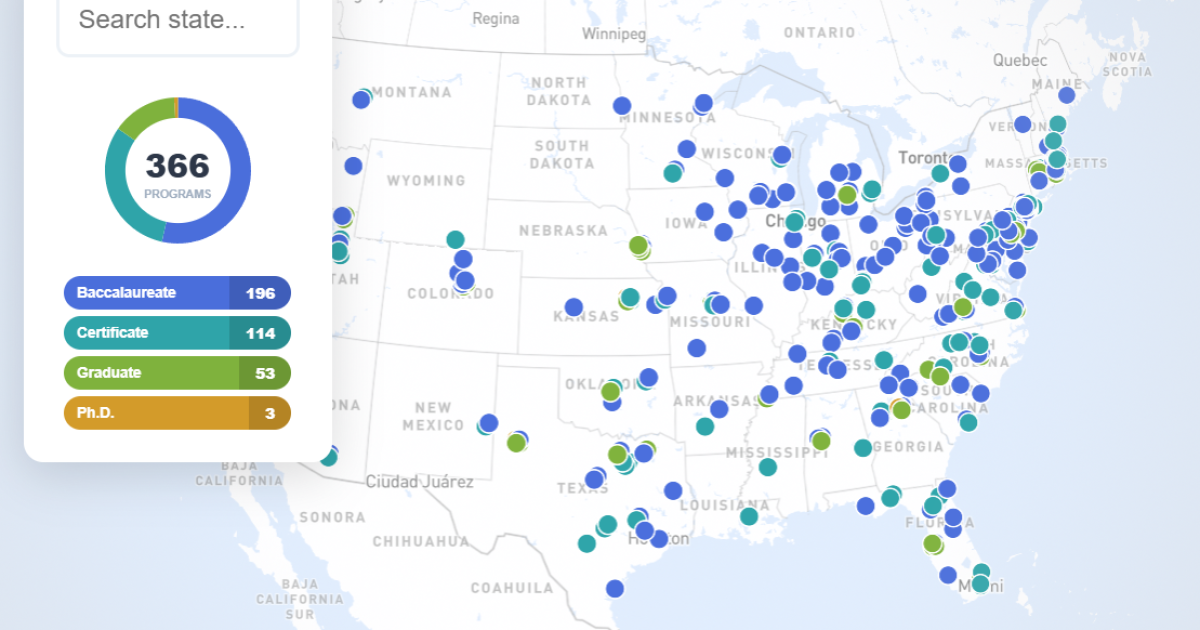A group representing state regulators is moving forward with guidelines that could vastly restrict who is allowed to put money into real estate-investment funds traded outside of public markets.
The North American Securities Administrators Association, composed of state and provincial securities regulators in the U.S., Canada and Mexico, this month approved its first revision to its recommended rules for non-traded real estate investment trusts, or REITs, since 2007.
Among other things, the new guidelines call for raising the net worth and income criteria for regular investors who want to put money into non-traded REITs and limiting on how much they can invest. They also make it clear that advisors’ recommendations of non-traded REITs are subject to industry conduct standards like Regulation Best Interest, which requires them to do what’s best for clients and disclose conflicts.
“By incorporating applicable conduct standards for those selling or recommending REIT investments and updating investor suitability requirements, the updated guidelines reinforce NASAA members’ commitment to fair and responsible REIT practices,” said Faith Anderson, the chief of registration and regulatory affairs in Washington State’s securities division, in a statement.
READ MORE:The risks of investing in private equityCerulli: Fee compression coming for financial advisorsIndustry braces itself for proposed new regulations for non-traded REITSSurprised by Blackstone’s limit on REIT withdrawals? Advisors shouldn’t beStanding up for his REITs: Swaringen sees no need for further regulation
Do non-traded REITs belong in regular investors’ portfolios?
The impetus for the new guidelines is a general concern that regular investors are investing too often in an often opaque and risky investment vehicle. Like their publicly traded cousins, non-traded REITs give investors a way to put money into apartments, warehouses, commercial offices, cell phone towers and other types of property without having to own any of it outright.
The big divergence comes in the way that non-traded REITs are valued. Unlike publicly traded REITs — whose prices are set on open markets just like stocks’ — the value of non-traded REITs is usually based on the results of intermittent appraisals of their underlying real estate holdings.
Although regulators insist companies that offer non-traded REITs work with third-party appraisers to determine the value of their real estate holdings, critics say it’s difficult to confirm the results are accurate. They also note that most non-traded REITs set strict limits on investors’ ability to withdraw their money, making them more illiquid than stocks and other traditional investments.
New rules for income, net worth and portfolio concentrations
NASAA’s new guidelines respond to these concerns in several ways, including by calling for:
Raising the minimum net worth requirements for investing in non-traded REITs to $300,000 from the current $250,000. NASAA further recommends measuring investors’ eligibility by looking only at “liquid” net worth, meaning regulators wouldn’t count money tied up in a house or similar assets. The numbers are to be adjusted every five years in keeping with inflation.Similarly increasing the criteria for an alternative to that net worth requirement. NASAA regulations now also allow investors to put money into non-traded REITs if they can show they have a combination of a minimum $70,000 net worth and at least $70,000 in annual income. The new guidelines call for raising those criteria to $100,000 in liquid net worth and $100,000 in liquid income.Setting a limit preventing regular investors from putting more than 10% of their portfolios into non-traded REITs. In one of the biggest revisions to the guidelines as they were originally proposed, NASAA decided to exempt from this provision people who already qualify as “accredited investors.” (The Securities and Exchange Commission defines accredited investors as people with at least $1 million in assets — excluding homes — and an annual income of at least $200,000 for the past two years for single earners and $300,000 for married couples.)
NASAA meanwhile would apply not only Regulation Best Interest to recommendations of non-traded REITs but also other conduct rules like the fiduciary standard (which calls on advisors to always put their clients’ interests first) and those contained in the federal retirement law known as ERISA.
Valerie Mirko, a former general counsel at NASAA and the head of securities regulation and litigation at Armstrong Teasdale in Washington, D.C., said the revised guidance offers “somewhat of an improvement” for advisors and firms that have to follow the new rules.
Mirko said her clients generally welcome the carve-out provided for accredited investors and the clarification on what conduct standards apply to recommendations of non-traded REITs. But as states now decide whether or not they want to adopt the new rules, compliance is likely to be anything but simple.
Like all adopted proposals from NASAA, the new recommended guidelines have no legal authority on their own. The changes technically take effect on Jan. 1, but states remain free to adopt or ignore them as they see fit.
“It’s especially important that firms monitor closely the requirements, seeing as how individual jurisdictions take various approaches towards adoption of NASAA statements of policy,” Mirko said.
A revision in the works for years
NASAA has been contemplating revisions to its recommended rules for non-traded REITs for years. A proposal first circulated in July 2022 called for similar net worth and investing limits as are found in the recently adopted guidelines.
Those proposals went by the wayside amid criticism from groups like the Institute for Portfolio Alternatives, which complained regulators could be depriving regular investors of a key means of diversifying their investments beyond stock and bonds. The latest recommended rules were first introduced this March and then revised in response to comments from industry groups and firms.
That didn’t halt criticism from groups like the IPA, which advocates for giving investors greater access to “alternative investments” like non-traded REITs. In a comment letter submitted in May, IPA noted that non-traded REITs, although not bought and sold on public markets, are nonetheless registered with the Securities and Exchange Commission.
“A foundational principle of the federal securities regime is that, once an offering is registered, the registered securities may be offered to any investor, in any amount, without artificial restrictions — because investors are protected through full and fair disclosure, Regulation Best Interest … and fiduciary conduct standards,” the institute wrote.
Not your grandfather’s non-traded REITs
The IPA and other advocates of non-traded REITs insist that changes made to the investment vehicles have gone a long way toward alleviating anxieties about their risks and illiquidity. The earliest versions of non-traded REITs tended to be what is now known as “life cycle” REITs. These were particularly illiquid because they typically allowed investors to take their money out only once, after the underlying real estate in the fund was sold.
Lifecycle REITs have since been largely replaced by so-called net asset value (NAV) REITs. These generally allow investors to take money out at far more frequent intervals, often once a month.
But they do come with redemption limits restricting the total amount of money that can be withdrawn at any given time. And those barriers have given rise in recent years to rekindled concerns about illiquidity.
Starting in late 2022, for instance, the asset management giant Blackstone began deferring clients’ requests to pull money out of its non-listed Blackstone real estate trust (BREIT) after previous outflows ran up against its redemption gates allowing no more than 2% of the fund to be pulled out in a month or 5% in a quarter. BREIT didn’t return to being able to meet all of its redemption requests until February 2024.
REITs show up frequently in FINRA arbitration cases
But it’s not the barriers non-traded REITs put up to withdrawing money that’s most likely to make them a target for aggrieved investors.
Adam Gana, the president of the Public Investors Advocate Bar Association, said non-traded REITs have figured more than any other investment product in the cases he’s brought before arbitration panels administered by the Financial Industry Regulatory Authority, the broker-dealer industry’s self-regulator.

Most often, Gana said, investors complained that their advisors failed to take into account their particular investing goals and cash needs when recommending they put money into non-traded REITs. Wealth managers will often tout the reduced volatility of non-traded REITs, which are insulated from market gyrations because of not being bought and sold daily.
“But it’s not that they are really any less volatile,” Gana said. “It’s just that they are not priced as often. That’s constantly misunderstood about these products.”
FINRA statistics show that real estate investment trusts have been the second most frequently cited type of security in arbitration complaints brought by advisor clients. Last year, for instance, REITS — both the traded and non-traded kinds — figured in 164 cases brought by aggrieved investors. REITs were more likely to be the subject of complaint than options (which appeared in 87 cases), mutual funds (113 cases), corporate bonds (169 cases), and private equities (94 cases). They lagged behind only common stock cases (304).
“It’s not only the opaque nature of these investments,” Gana said. “It’s the illiquidity, which is a huge problem especially for retirees, who will eventually need to spend their money.”
Decline in non-traded REITs; possible rise in private placements
Despite concerns about regular investors putting money into poorly understood investments, non-traded REITs are no longer the magnet for capital they once were. The industry-tracking investment bank Robert A. Stanger & Co. found that money flowing into non-traded REITs fell from $11.4 billion in 2020 to $6.1 billion 2024.
The cause of that plunge, said Kevin Gannon, Stanger CEO and president, wasn’t the withdrawal limits BREIT and other large non-traded REITs imposed on investors. If anything, those funds showed investors that they could eventually pull their money out — even if they had to wait a bit longer than they wanted.
“There has been $56 billion in capital redeemed in the last three and a half years,” Gannon said. “It’s remarkable how well that’s been executed.”
The culprit for declining non-traded REIT investment is instead lingering high interest rates. Most people borrow money to buy real estate, and high rates have made loans unattractive for the past few years.
Gannon predicted falling rates will restart the flow of capital into non-traded REITs. NASAA’s new guidelines won’t hinder that resurgence, he said. But it may drive it to take a different form.
Companies that offer non-traded REITs and want to avoid the new rules can simply structure them as a type of unregistered security known as a private placement. This structure allows them to avoid not only various SEC reporting requirements but also regulation by state securities watchdogs.
Privately placed non-traded REITs are already gaining in popularity. As investments in their publicly registered counterparts dwindled from 2020 to 2024, flows in private placement REITs rose from $271 million to $4.9 billion, according to Stanger.
“At the end of the day, people are seeing state regulations are so erratic, and people are realizing it is easier to just do it as a private placement,” Gannon said.


























